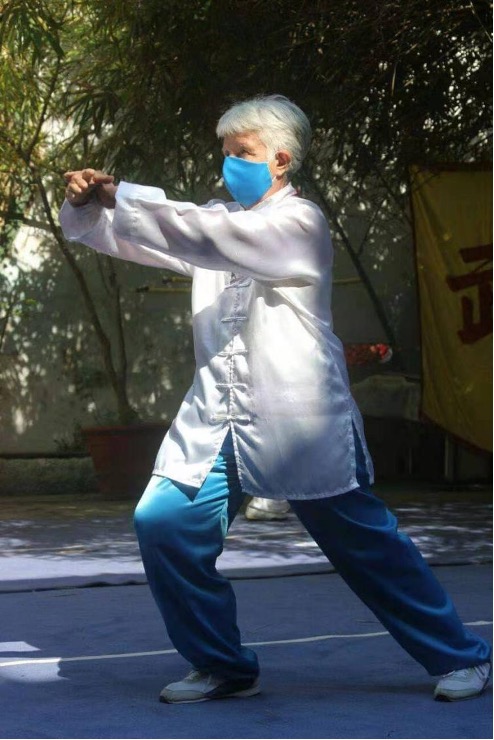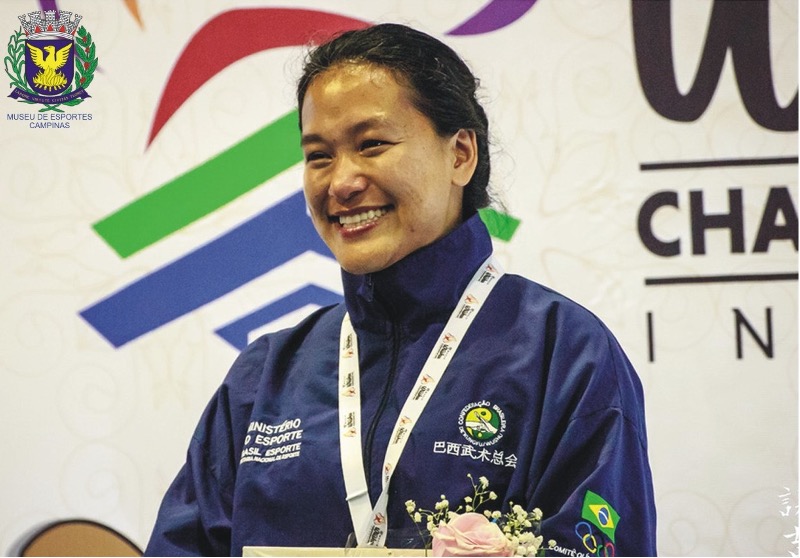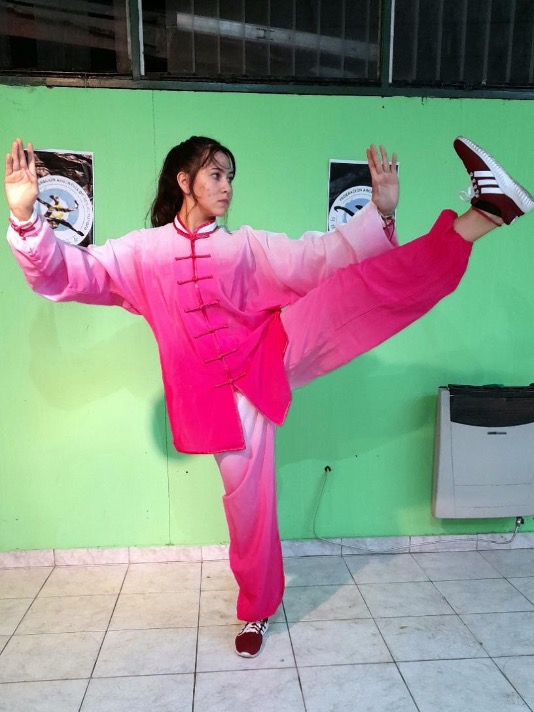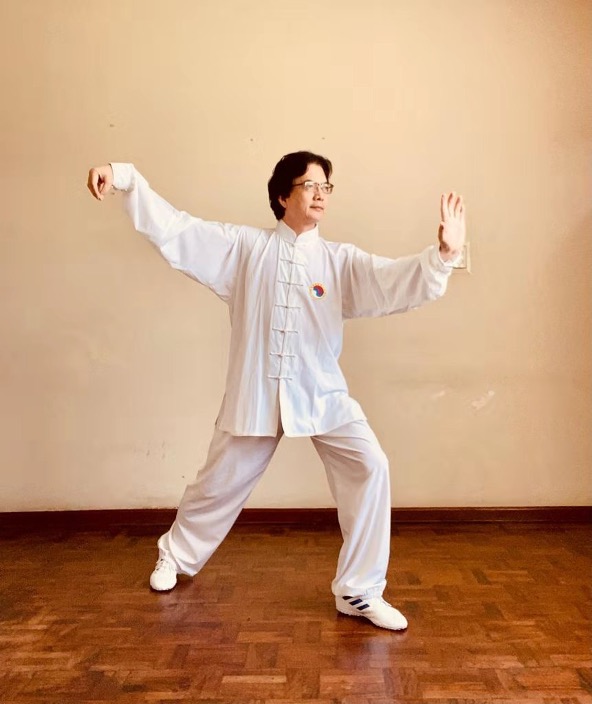



The "2021 China-Latin America and Caribbean Tai Chi Online Competition," sponsored by the Chinese Wushu Association, is about to come to a close. Apart from China, this competition has attracted over 200 participants from 13 countries and regions in Latin America and the Caribbean. Nearly a thousand video entries have been received, and a "Tai Chi wave" is sweeping through these nations. Participants of various ages and diverse backgrounds, ranging from 16-year-old youths to 71-year-old seniors, from psychologists to martial arts world champions, have enthusiastically joined the Tai Chi movement. Why does Tai Chi bring together people of such different ages and backgrounds?
Cuba, Inés María Bárcena: Tai Chi brings me joy, and I want to share that joy with those around me.

At the age of 71, I feel revitalized, thanks to my 14-year practice of Tai Chi. My body has become more flexible, and I no longer feel tired after walking long distances because I am always active. I am joyful, and I want to spread that joy to those around me.
Brazil, Tania Emi Sakanaka: Life can be as simple as practicing Tai Chi for 15 minutes in a 2-square-meter area!

I began practicing Tai Chi in 1995 at the Martial Arts Research Center (CEAMC) of Campinas State University (FEF/UNICAMP) in Brazil. My experience with martial arts led me to decide to pursue a master's degree at Beijing Sports University (BSU) in China from 2004 to 2011 and train for high-level competitive events.
Now I hold a Ph.D. in Sports Science from the University of Birmingham (UoB), UK, and I am a postdoctoral researcher. Since 2021, I have been teaching Tai Chi at the China Wushu Research Center, allowing me to visit many beautiful places around the world and meet remarkable people with diverse cultural backgrounds, deepening my understanding of human physiology, health, and self-awareness.
No words can adequately describe the tremendous benefits Tai Chi has brought to my life. More important than anything is the necessity of humility, perseverance, and wisdom in rapidly improving martial arts skills. Life can be as simple as practicing Tai Chi for 15 minutes in a 2-square-meter area.
Argentina, Sasha Quintana: When I finish a day of intense study and return home to practice Tai Chi, I can feel strength and happiness.

My name is Sasha Quintana, and I am 16 years old. I have been practicing Tai Chi with my father, who teaches Chinese martial arts, since I was young.
For me, Tai Chi is natural. Daily practice fills my body with oxygen, making me feel good and happy. I enjoy participating in competitions, experiencing the positive atmosphere and the benefits to my mind and body. Tai Chi can be described, but when you practice it, you uncover more things that ignite your inner energy. For instance, after a challenging day of studying, when I return home to practice Tai Chi, I feel strength and happiness.
Chinese martial arts are my passion and life. I invite those who have never practiced Tai Chi to join us, experience its benefits, and make new friends. Tai Chi has aided my growth and helped me understand Chinese martial arts and culture.
Peru, Javier Geng: I believe Tai Chi teaches people how to respect others and possess a humble attitude.

I have been familiar with Tai Chi since childhood, thanks to martial arts movies and my aunt Virginia. She came from Hong Kong to live with us for a few months, and I often saw her practicing Tai Chi in the mornings. Her movements while practicing Tai Chi were similar to those I had seen in martial arts movies, so I asked her to teach me. This was my initial exposure to Tai Chi. Later, my aunt returned to Hong Kong and sent me several books on the subject, fueling my desire to continue learning. In the late 1990s, I gained a clearer understanding of the basics of Tai Chi through a TV show called "Infinite" on cable television.
My interest in Tai Chi never waned. I even acquired various Spanish-language books related to Tai Chi to immerse myself in its atmosphere. Through these books, I learned about different styles of Tai Chi. However, what I love most is the life philosophy that accompanies martial arts. For example, "The willow tree appears fragile, but that is where its strength lies." After a tornado, strong and solid trees like cedar and peach trees fall, while the willow tree stands tall because it knows how to harmonize with the wind. Tai Chi teaches you the importance of adapting to your environment. These teachings have greatly helped me during my Tai Chi practice and have also benefited my 40-year career as a psychologist. I tell my patients that Tai Chi is an excellent stress-reliever.
I believe Tai Chi conveys many values, primarily teaching people how to respect others and possess a humble attitude. Another value it imparts is patience, a traditional Eastern quality. I think practicing Tai Chi is an excellent way to shape a good citizen. Practicing Tai Chi together as a group promotes unity, as it encourages positive social interactions. Tai Chi connects people through empathy and love, supporting each other during practice and creating a positive social atmosphere.